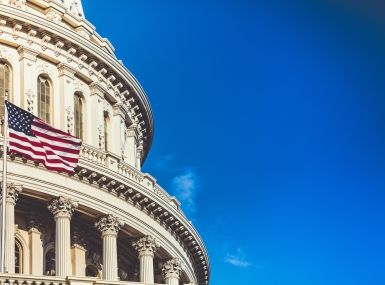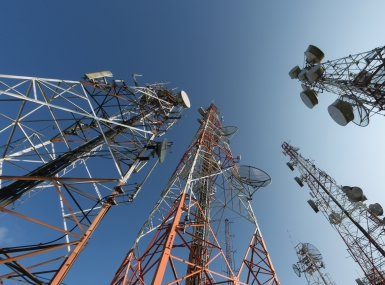New legislation would reduce local regulatory authority on telecommunications infrastructure
Upcoming Events
Related News

Key Takeaways
Senate Commerce Committee Chairman Sen. John Thune (R-S.D.) and Sen. Brian Schatz (D-Hawaii) introduced legislation, June 28, that would place limits on the authority of local governments to regulate the deployment of wireless communications infrastructure within their jurisdictions.
The new legislation, Streamlining the Rapid Evolution and Modernization of Leading-edge Infrastructure Necessary to Enhance Small Cell Deployment Act (S. 3157), or “STREAMLINE Small Cell Deployment Act” for short, would limit fees local governments are currently able to assess telecommunications companies for the placement, construction or co-location of new wireless service facilities. The bill would restrict these fees to “actual costs,” capping what local governments can charge telecommunications companies for the use of locally owned rights-of-way and reducing or eliminating any application fees local governments may assess for processing incoming requests for construction.
Additionally, the new legislation would limit the amount of time local governments have to consider and respond to requests made by telecommunications companies make to build new wireless service facilities on locally owned land.
Specifically, the bill mandates that local governments respond to applications or requests from telecommunications companies related to new wireless service facilities on local infrastructure, including 5G Small Cells, within 60 days for co-located technology and 90 days for new wireless service facilities. The co-location requirements extend to buildings, light poles and public rights-of-way. In instances where local governments fail to respond to such requests, the federal government would extend authority to telecommunications companies to build on locally owned land without the consent or approval of local officials. In March, NACo sent a letter to the Federal Communications Commission (FCC) opposing similar proposals that would limit the authority of local governments and curtail the ability of locals to raise revenue. S. 3157 is one of the first bills introduced in Congress that would alter local regulatory authority related to wireless telecommunications infrastructure deployment. NACo encourages county officials to urge their congressional representatives to work with local governments on new laws or regulations that would speed the deployment of next-generation telecommunications infrastructure without limiting local zoning authority or limit the ability of local governments to raise revenue.
Attachments
Related News

Congress considers moratorium on state and local AI lawmaking: What it means for counties
The U.S. Senate’s reconciliation bill text includes a 10-year moratorium on state and local AI policymaking.

NACo Legal Advocacy: McLaughlin Chiropractic Associates, Inc. V. McKesson Corporation
McLaughlin Chiropractic Associates, Inc. V. McKesson Corporation could make it more difficult for counties to challenge FCC orders, many of which have taken steps to preempt and curtail local authority by limiting counties’ abilities to manage their own right of way and assess fair market value permitting and impact fees on providers seeking to construct, modify or extend telecommunications infrastructure in their communities.

U.S. House passes rescissions package
On June 12, the U.S. House of Representatives passed the Rescissions Act of 2025 (H.R. 4) in a narrow 214-212 vote. The legislation would cancel $9.4 billion in previously approved federal funding, marking the Trump Administration’s first formal attempt to codify funding cuts proposed by the Department of Government Efficiency (DOGE).